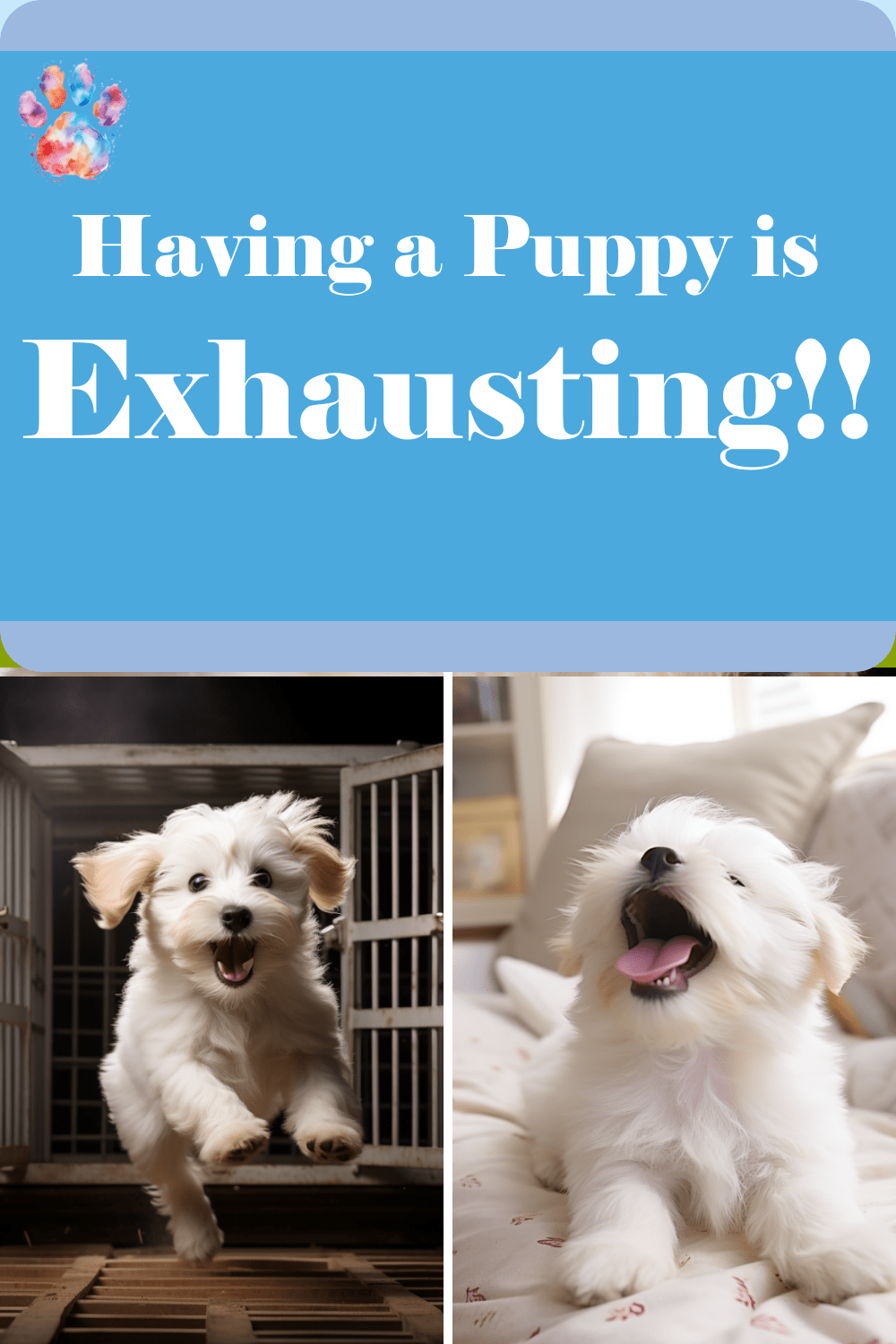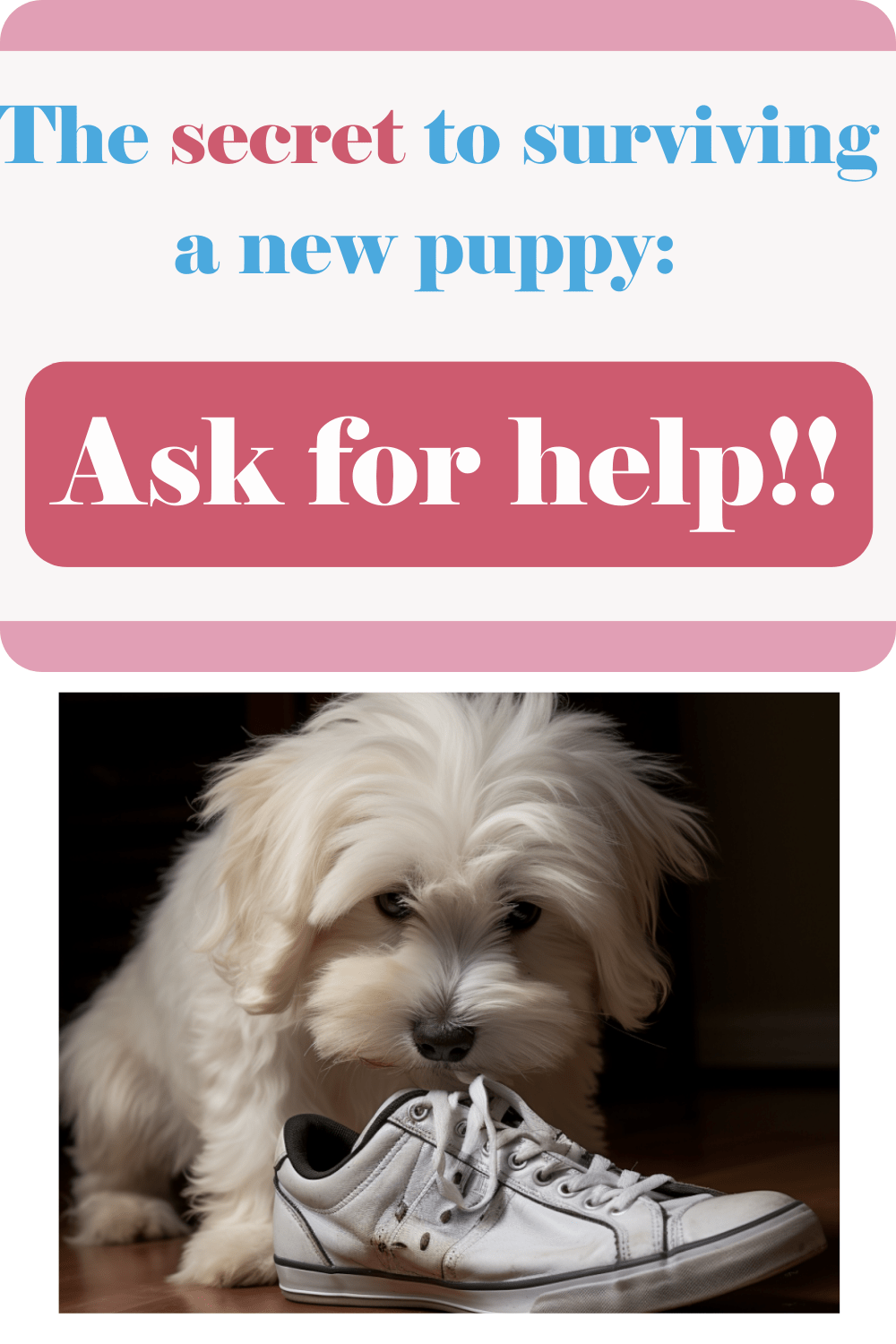Having a Puppy is Exhausting - The Puppy Blues Are Real
It’s truth time! Having a puppy is exhausting for everyone in the first weeks or even months, but it can be especially challenging for first time dog owners and pet parents who are not physically, mentally, and emotionally prepared.
Puppy Blues Got You Down? Welcome to the Club of Sleep-Deprived, Overwhelmed, and Poop-Cleaning Owners!
Do you think you’re the only one who feels like having a puppy is exhausting? Well, you are definitely not alone.
You finally got that cute little puppy you've been dreaming of. You did all your research, bought all the supplies, and even puppy-proofed your house. But now that your puppy is home, you feel overwhelmed and anxious. Welcome to the world of the puppy blues.
What are the puppy blues? Puppy blues are a real thing, and it's more common than you might think. It's that feeling of sadness, anxiety, and stress that can come with taking care of a new puppy.
You might feel like you're not doing a good job or not bonding with your puppy like you thought you would. It’s also a lot of work, and you’re not getting much sleep. And you can’t stop worrying about your new pup.
It's okay to feel this way, and it's important to know that it won't last forever.
Are you a worrier like I was?
- Is she eating enough?
- Is this the best food for her?
- Is she sleeping too much?
- Will she ever stop chasing the cat?
- Will she ever be house trained?
- Will I find a good pet sitter?
- Is she okay when I leave her alone?
- Am I a bad person if I feel like my puppy is driving me crazy?
- Is it normal for her to hiccup, sneeze, eat grass, sleep so much, eat poop (yup!), or lose her teeth?
- Will I ever get an uninterrupted night's sleep again?
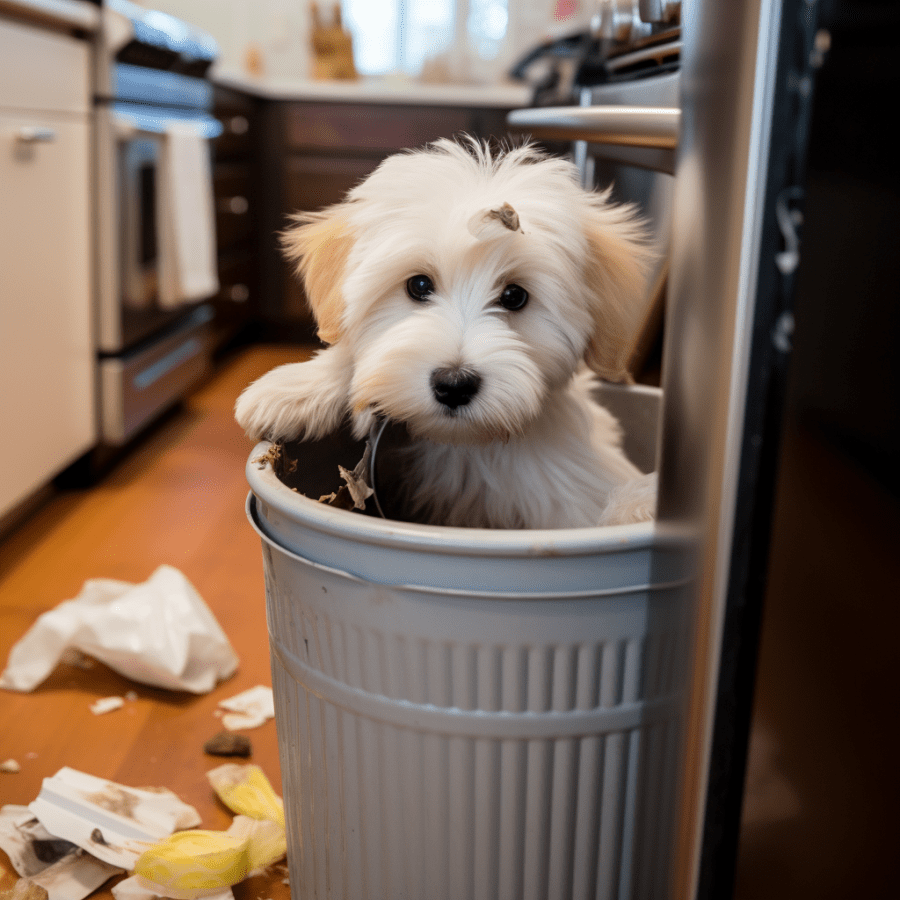
I was surprised that I got the puppy blues with Lucy since I’ve had dogs all my life, and I don’t remember ever being so overwhelmed. Is it my age? My new puppy? Is it like childbirth, where you forget the pain as time passes?
Are you experiencing any of these first-time dog owner struggles?
- Sleep Deprivation: Your new dog wakes you up at all hours of the night, demanding attention and bathroom breaks. You're so tired that you feel like a walking zombie. Having a puppy is exhausting at first, but those crazy sleepless nights won’t last forever!
- Anxiety: You worry about your puppy's health, safety, and behavior. You're constantly googling things like “Is my puppy eating enough?" or “Why won't my puppy stop biting me?”
- Frustration: Your puppy is not potty trained yet, and accidents happen frequently. You're tired of cleaning up pee and poop from your floors and carpets.
- Chaos and destruction: It feels like you have to watch this tiny little home-destroyer every second. As soon as your back is turned, your puppy finds trouble. This crazy puppy period can be especially difficult for those who need to have their homes neat and looking perfect. You will have to get over that for a few months. Puppies are messy!!!
- Financial worries: Most people underestimate the cost of having a dog. It’s good to be prepared, or you will have to deal with sticker shock. There are normal puppy vet visits for vaccines, flea and heartworm prevention, and routine blood work and exams. Then there’s food, treats, bowls, leashes, harnesses, crates, carriers, dog beds, toys, pet sitters, dog walkers, car seats, and cleaning products. You can minimize the costs by using second-hand supplies from friends and family or buying bulk from big box stores or less expensive online shops. Or you can wait for sales. Here’s a list of supplies to have on hand when your puppy arrives.
- Feeling Overwhelmed: Caring for a puppy requires a lot of time, energy, and attention. It’s normal to feel overwhelmed by this tiny little being. You’ll learn some tips in the next section to help you cope.
- Being unable to adapt to change: Adding a puppy to your household can disrupt your daily routine. It can take some time to adjust to the new schedule and responsibilities of being a pet owner. Change is hard, but if you practice the tips and tricks below, you’ll succeed in no time.
- Feeling isolated: You can't go out with friends or family because you have to stay home and take care of your puppy. You feel like you're missing out on social events and activities.
- Feeling Guilty: You feel guilty for being frustrated or annoyed with your puppy. You love your dog, but you're struggling to adjust to your new life with your new addition.
If you're experiencing any of these symptoms, know that it's normal and that things will get better with time. Don't be afraid to ask for help or support from friends, family, or a professional trainer. Remember to take breaks and prioritize your own self-care. You got this, and your puppy loves you no matter what.
Yes, having a puppy is exhausting, but there are plenty of ways to cope with the puppy blues to minimize your overwhelm, frustration, and fatigue. And the good news is that this stage doesn’t last too long. You’ve got this!!
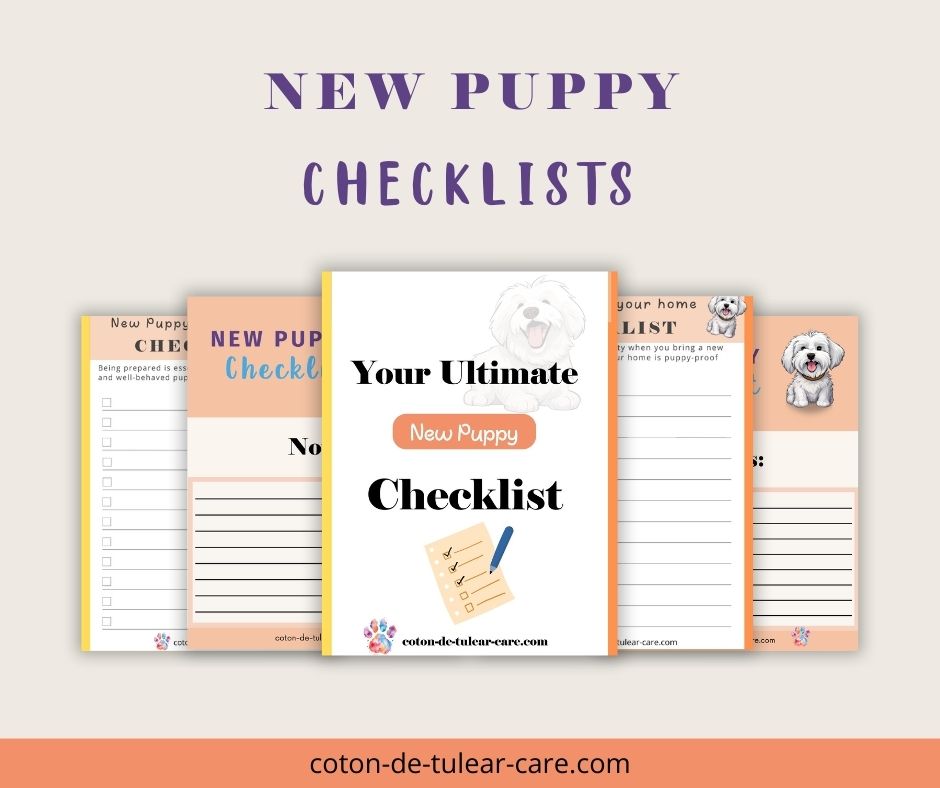 |
Overcome the Overwhelm Take the guesswork out of caring for your new puppy. Sign up below to receive 4 FREE must-have comprehensive checklists that every new puppy parent must have. |
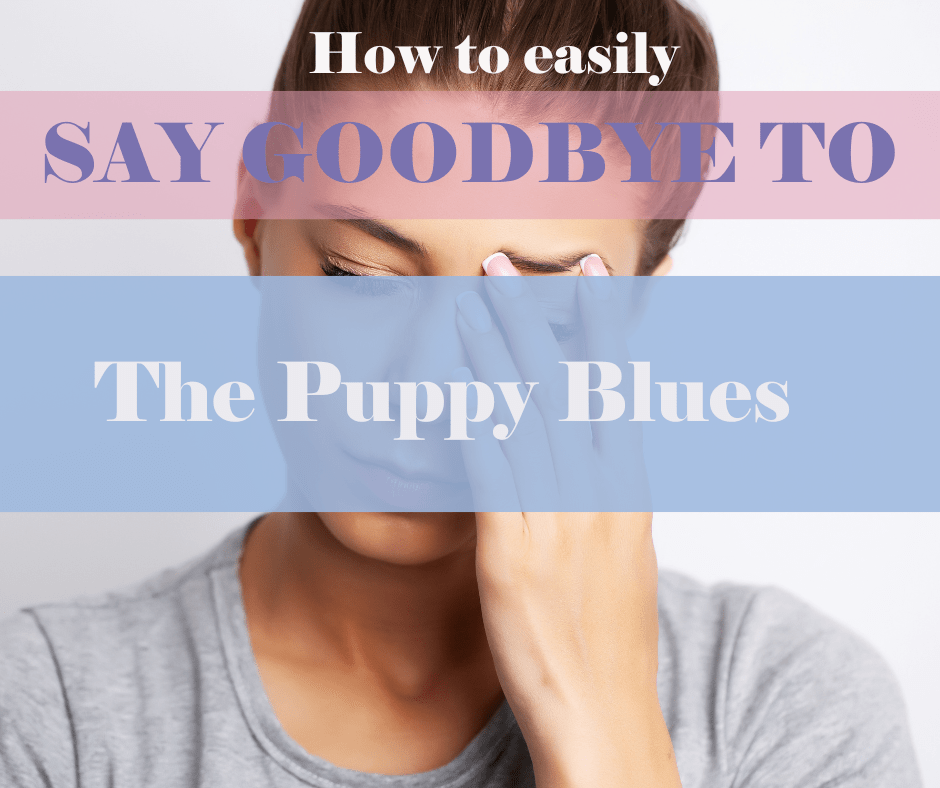
Dealing with Puppy Blues: Tips and Tricks
Here are some tips and tricks to help you deal with the puppy blues:
- Take breaks: It's important to take breaks from your new puppy, especially if you're feeling overwhelmed. You can't be the best pet parent if you're burnt out. Take some time for yourself and do something relaxing, like taking a bubble bath or reading a book. Whether it's a quick walk around the block or a night out with friends, giving yourself a break can help you recharge and come back to your puppy with a fresh perspective.
- Set boundaries and create a schedule: Puppies thrive on routine, so creating a schedule can help both you and your new dog. Plan out times for feeding, playtime, and potty breaks. This will not only help your puppy adjust to their new home, but it will also give you a sense of control and structure. Establishing clear boundaries and rules can help your puppy understand what's expected of them and can make training easier in the long run.
- Ask for help: Don't be afraid to ask for help! Whether it's a friend, family member, or professional dog trainer, having someone to assist you can make a huge difference. Plus, it's always good to have a second opinion or someone to bounce ideas off of. If you remember one thing from this article, I hope it’s the importance of reaching out for help. Everyone loves puppies, so most people are happy to lend a hand so you can take a much needed break. When I finally reached out, everything got so much better for me. It’s so easy to get wrapped up in your dog’s needs and forget about your own. Make sure you’re getting enough rest, healthy meals, and don’t forget to have some fun!
- Set realistic expectations. It always feels like everyone else knows what they’re doing and has the perfect dog. But I guarantee most of them went through the same adjustment period with their dogs. You will not have a perfectly trained dog overnight. So give yourself and your dog a break and be patient as you navigate this new relationship.
- Tire that puppy out! Make sure your new best friend gets plenty of physical and mental stimulation. A tired puppy is a happy puppy, which means you’ll be happier. Puppies tire easily, so it really doesn’t take much to get them tired enough for a nap - a short walk, a game of fetch, a 5-minute training session, and some puzzle games should do the trick. Then you can nap while they’re napping - it’s a win-win!
- Practice patience: Puppies are like babies; they require a lot of patience and understanding. It's important to remember that they're still learning and adjusting to their new surroundings. Don't get frustrated if they have accidents or misbehave. Instead, try to redirect their behavior and reinforce positive actions.
- Find a supportive community: Joining a support group or online community can be a great way to connect with other pet parents going through the same thing. Our website is a great place to share your joys and frustrations with others. You can share your experiences, get advice, brag about your cute new pup, and even make new friends!
Having a puppy is exhausting because it has its fair share of challenges - especially in the early weeks. One of the biggest challenges is the time and energy it takes to care for a puppy properly.
I had forgotten how much time and attention a puppy needs. I had all these visions of hugs, cuddles, playing, and companionship - but it was more like chaos, cleaning, and crying (both of us).
When I got my previous puppy, Luc, I worked full-time and had a lot of help from friends and family. With Lucy, I was retired and was with her 24/7. So, I never got relief from all the puppy responsibilities. If I had it to do over again, I would definitely ask for more help!
Training a puppy requires consistent effort and patience. Potty training alone can take several weeks or even months. And that's just the beginning.
You'll need to teach your puppy basic commands, like "sit" and "stay," as well as more advanced commands, like "heel" and "come." All of this takes time and energy, and it can be frustrating when your puppy doesn't seem to be progress as quickly as you'd like.
In addition to training, puppies require a lot of attention and exercise. They need to be fed several times a day, taken for numerous walks, and given plenty of playtime. . If you work outside the home or have other commitments, finding the time to give your puppy the attention and exercise they need can be challenging.
It’s Critical to Adjust Your Expectations

Training expectations
One of the most common reasons having a puppy is exhausting is that you don’t set realistic training expectations. Being realistic and prepared is the key to getting through this challenging phase as easily as possible.
It’s normal for a young puppy to have excess energy, create sleepless nights, and have potty accidents. You don't get upset when your human child takes months or years to learn how to walk, talk, use the toilet, and know what’s expected, right?
Behavioral challenges are normal for puppies, but many new dog owners get stressed and overwhelmed when their new puppies don’t have good manners right from the start.
So, how do you set realistic expectations?
An area where expectations are critical is training. Why does training look easy for everyone else’s dog?
Having a puppy is exhausting and frustrating for many people because their expectations are out of whack. But you can shift your expectations to make life easier for you and your new dog.
- Start small and focus on one behavior at a time. I hired a trainer and bought several online training programs when I got Lucy. I was immediately overwhelmed with all the instructions and conflicting information. Dog training isn’t that difficult if you take small steps every single day. Training programs make things look super easy and fast - but the reality might not look like that. So, be easy on yourself and your pup. Expecting instant results is unrealistic and only leads to frustration. Be patient - it will all work out!!!
- Prioritize bonding over obedience. Those first few days, weeks, and months are such a necessary time to bond with your new puppy. You will both be much happier spending time playing and cuddling instead of over-training. Your puppy will respond more positively to training when there’s a deeper bond.
- Don’t compare your dog to others. I got Lucy six months after my dog, Luc, passed. I couldn’t help but compare her to him, and it wasn’t fair to her. Lucy has her own unique personality, and it’s important to love her for all her quirkiness. And it’s never a good idea to compare your dog to others in your neighborhood or in a training class.
- Chill out. Dogs like the Coton de Tulear are incredibly perceptive, capable of picking up on our emotions and attitudes. Maintaining a calm, positive mindset during training sessions creates an environment filled with enthusiasm, encouragement, and optimism, which can significantly influence the dog's response and willingness to learn. If you have fun, they’ll have fun!
- Be positive. Focus on your dog's successes. Celebrating every small achievement goes a long way in making training a positive experience. This builds their confidence and deepens the bond between you two.
- Be self-aware. Recognize your own emotions and thoughts during training sessions. Be mindful of any negative patterns and consciously replace them with positive and constructive thinking.
- Ask for help so you can have some me-time! It's important to take breaks for yourself. Having a support system can provide relief and perspective. Ask for help! Having a puppy is exhausting and you will be a much better puppy parent if you’re not overwhelmed and stressed out.
Commitment Expectations
In addition to training expectations, it’s also important to be realistic about your commitment.
Time: First, owning a puppy requires a significant amount of time commitment. Puppies need to be trained, exercised, and socialized regularly. You should expect to spend at least an hour a day training, playing with, and exercising your puppy.
Also, puppies need to be taken outside to go to the bathroom frequently, especially when they are very young. This means you'll need to be available to take your puppy outside every few hours, even in the middle of the night.
Energy: You’re sleeping less and have a lot more on your plate, like cleaning up lots of accidents, walking many times a day, playing with and training your puppy, socializing, grooming, and keeping an eye on her 24/7.
To ensure you don’t deplete your energy, make sure you take naps, eat healthy food, exercise, and get help if possible. You can also manage puppy energy by providing plenty of physical activity, mental exercise, and mitigating destructive behaviors by providing chew toys, keeping them confined to small, safe areas, and making sure they get plenty of sleep.
Money: Then, there’s the financial commitment. As discussed above, most people aren’t prepared for how much this tiny puppy will cost. Going in with realistic financial expectations will reduce your stress.
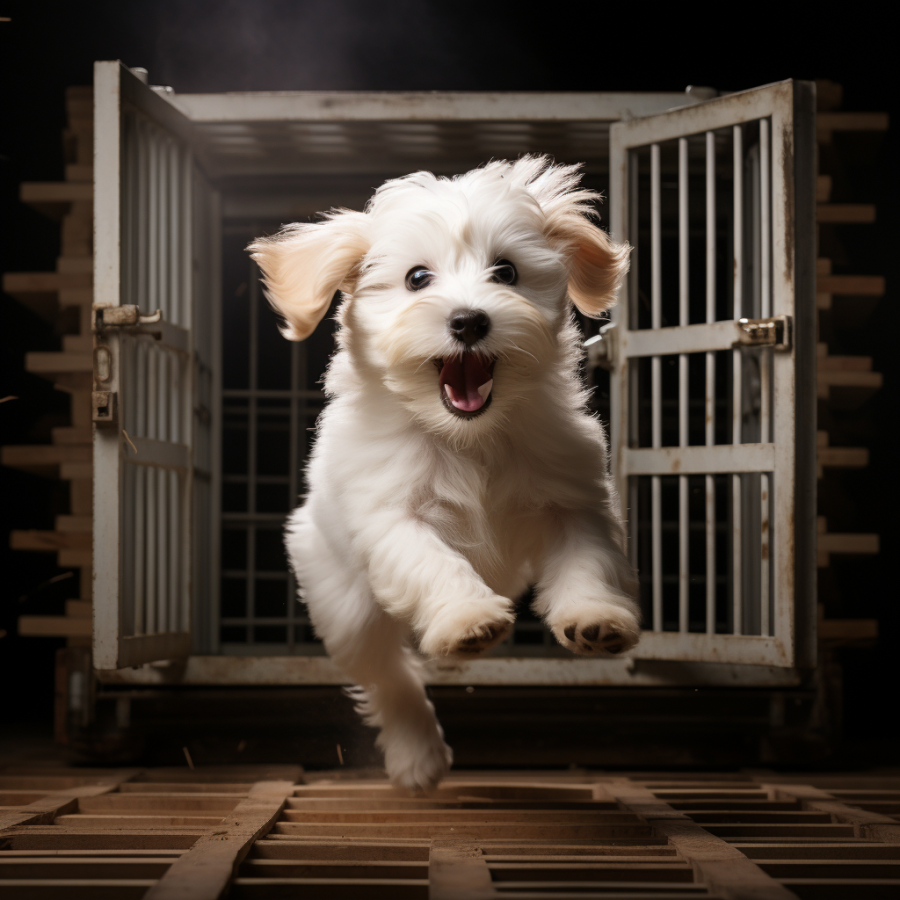
How to Overcome New Puppy Challenges
House Training
House training a puppy is one of the biggest challenges you'll face as a new puppy owner. It takes time, patience, and consistency to train your puppy to go potty outside.
Creating a routine is one of the most effective ways to house train your puppy. Take your puppy outside first thing in the morning, after meals, and before bedtime. Praise your puppy when they go potty outside and avoid punishing them when they have accidents indoors. Accidents will happen, but with time and consistency, your puppy will learn to go potty outside.
Behavioral Training
Behavioral training is another challenge that comes with owning a puppy. Puppies can be very energetic and playful, but they can also be destructive. Positive reinforcement is one of the most effective ways to train your puppy. Reward your puppy when they exhibit good behavior, such as sitting or staying on command. Avoid punishing your puppy for bad behavior, as this can lead to fear and anxiety.
Another important aspect of behavioral training is socialization. Socializing your puppy with other dogs and people is crucial for their development. Take your puppy to parks, pet stores, walks in the neighborhood, or puppy socialization classes to help them learn how to interact with other dogs and people.
Dog Enrichment Activities go a long way in providing a healthy outlet to stimulate your puppy’s mind and body. Physical exercise is easy with most puppies because they’re a bundle of energy and love to play. But mental stimulation is just as important for your pup’s health and wellbeing. Check out this list of indoor exercises to keep your pup mentally engaged.
Health Care Responsibilities
When it comes to your puppy's health, regular vet visits are crucial. For puppies, it's recommended to start with a series of vaccinations, typically beginning at 6-8 weeks of age, followed by additional shots in the following months.
Ideally, your first vet visit should happen within the first week of bringing your puppy home. After that initial visit, regular check-ups every 3-4 weeks during the first few months are advisable.
As your puppy grows, you can gradually space out the vet visits to around every 6-12 months for routine check-ups, vaccinations, and preventive care.
Remember, every puppy is unique, so consult your vet to establish a tailored schedule based on your dog's specific needs.
Preventive care is also crucial for your puppy's health. This includes regular grooming, dental care, and parasite prevention. Regular grooming helps keep your puppy's coat healthy and free of tangles and mats. Brushing your puppy's teeth regularly can prevent dental problems while parasite prevention can protect your puppy from fleas, ticks, and other harmful pests.
Your vet can advise on the best preventive care practices for your puppy. It is important to follow their recommendations and schedule regular appointments for preventive care.
Balancing Life and a Puppy
Let’s face it - in the early days and even months of living with a new puppy, it’s all about bonding with your dog, teaching basic behavior, and keeping them alive. Having a puppy is exhausting in these early days, but now you know there are things you can do to minimize the fatigue and overwhelm.
When you have a new puppy, it can be challenging to balance your social life. You may find that you have less time to spend with friends and family, as you need to devote time to training and caring for your puppy. It's important to communicate with your loved ones and let them know that you may not be as available as you used to be.
Here are some tips to make sure you don't miss out on important social events:
- Plan ahead: If you know you have a social event coming up, make sure to plan ahead and arrange for someone to take care of your puppy while you're away.
- Bring your puppy along: If possible, bring your puppy along to social events (after receiving their puppy shots). This is part of the socialization process and will get your dog accustomed to different people, places, and experiences. Many places are dog-friendly, and your pup may enjoy the new environment.
- Host social events at home: If you're worried about leaving your puppy alone, consider hosting social events at home. This way, you can keep an eye on your dog while still spending time with friends and family.
Work Life
Balancing work and a new puppy can also be challenging. You may need to adjust your work schedule to accommodate your puppy's needs, such as taking them for walks or letting them out to go potty.
To balance work and your puppy's needs, consider the following tips:
- Create a schedule: Plan your day and include time for your puppy's needs, such as feeding, exercise, and potty breaks.
- Take breaks: If possible, take breaks throughout the day to spend time with your puppy. This can help break up the day for both you and your dog.
- Consider doggy daycare: If you're unable to be home during the day, consider enrolling your puppy in doggy daycare. This can provide them with socialization and exercise while you're at work. You can also enlist the help of friends, family, neighbors, dog walkers, and pet sitters while you’re at work.
From the Puppy Blues to Puppy Love

Good news: Your puppy sleeps a lot, giving you much needed relief. And the puppy blues will morph into full-out unconditional puppy love.
Today, I can’t imagine life without Lucy. My only regret is that I let exhaustion and overwhelm rob me of quality fun and bonding time with Lucy in the beginning.
My hope for you is that you don’t make the mistake I did. Instead of focusing on the chaos, the sleep deprivation, and the mess, focus on the laughter, the cuteness, the cuddles, and the unconditional love.
Home | About Me | Contact Me | Privacy Policy |Disclosure
Copyright© 2008- All Rights Reserved


